In today’s times, when technology has made deep imprints onto healthcare, the emergence of generative artificial intelligence (AI) brings forth a new wave of innovation. Generative AI in healthcare has the remarkable ability to create new data or content similar to existing data, opening doors to transformative possibilities in healthcare.
Generative AI models and tools empower healthcare professionals to generate new data and insights, revolutionizing diagnostic accuracy, treatment planning, and patient care.
Let’s explore the top 11 AI models and tools that harness the power of generative AI to revolutionize healthcare.
Click here to learn about 8 Top USA Healthcare Data Warehouse with Their Real World Clients.
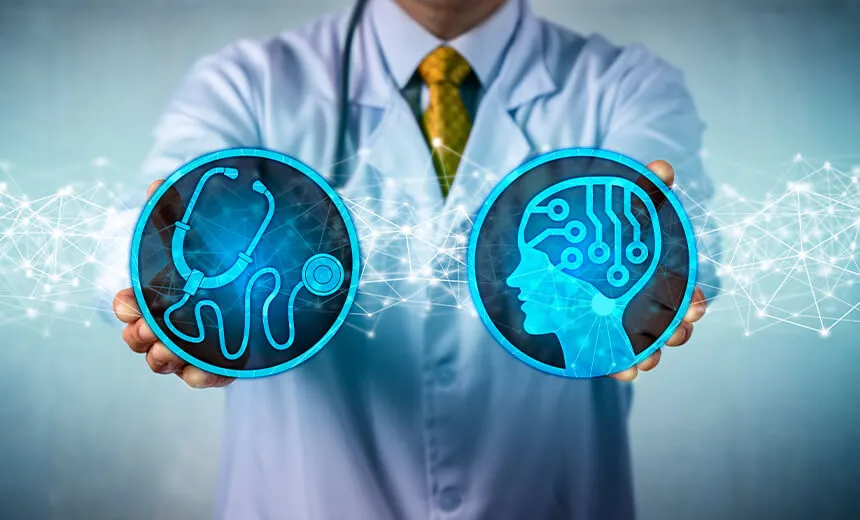
Understanding Generative AI
Before we dive into the applications in healthcare, let’s grasp the concept of generative AI. Generative AI involves algorithms that learn to mimic or generate data similar to the samples they are trained on. This can include images, text, or even entire scenarios. It operates on principles such as neural networks and deep learning, enabling machines to produce content that is increasingly indistinguishable from human-created data.
AI Models and Tools for Generative AI in Healthcare
1. TensorFlow
TensorFlow stands as a cornerstone in the realm of generative AI in Healthcare. Developed by Google, it offers a versatile framework for building and deploying machine learning models, including Generative Adversarial Networks (GANs). TensorFlow facilitates tasks such as medical image generation, disease prediction, and drug discovery.
Example: Healthcare researchers utilize TensorFlow to generate synthetic medical images for training AI models in tumor detection. By feeding the system with diverse data, TensorFlow enhances the model’s ability to accurately identify and classify tumors, leading to improved diagnostic outcomes.
Click here to know about Top 11 Healthcare Data Management Tools and Software; Details and Comparison.
2. PyTorch
PyTorch, developed by Facebook’s AI Research lab (FAIR), is another powerful tool driving advancements in generative AI in Healthcare. Its flexible architecture and dynamic computation graph make it ideal for developing deep learning models, including generative models. PyTorch enables researchers to experiment with innovative approaches in medical research and clinical applications.
Example: PyTorch facilitates the creation of generative models for synthesizing medical records. Healthcare providers can provide these models to generate realistic patient data for training AI systems, enabling more accurate and personalized treatment planning.
3. Hugging Face Transformers
Hugging Face Transformers is a leading library for natural language processing (NLP) tasks, including generative AI in Healthcare. It provides access to a vast array of pre-trained models and tools for text generation, summarization, translation, and more. Healthcare professionals leverage Hugging Face Transformers for tasks such as clinical documentation and patient communication.
Example: Hospitals integrate Hugging Face Transformers to automate medical report generation. The tool analyzes patient data and generates detailed reports, reducing administrative burden and improving documentation accuracy.
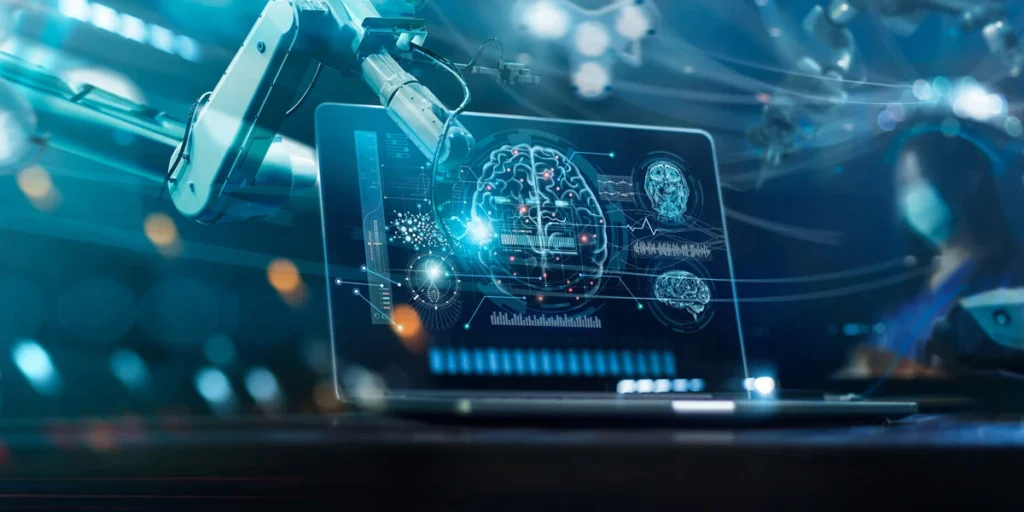
4. OpenAI’s GPT Models
OpenAI’s Generative Pre-trained Transformers (GPT) models have revolutionized patient communication in healthcare. These models excel in generating coherent and contextually relevant text, making them invaluable for tasks such as medical report generation, patient education, and telemedicine consultations.
Example: Healthcare providers deploy OpenAI’s GPT models to generate personalized treatment plans for patients. By analyzing patient data and medical histories, the models generate recommendations for medications, therapies, and lifestyle modifications tailored to individual needs.
5. NVIDIA Clara
NVIDIA Clara is a comprehensive platform that accelerates medical imaging workflows using generative AI in healthcare. It offers a suite of tools for image reconstruction, segmentation, and analysis, empowering radiologists and clinicians to make faster and more accurate diagnoses.
Example: Radiology departments deploy NVIDIA Clara to enhance medical image reconstruction. By leveraging generative AI in healthcare techniques, the platform produces high-quality images from limited or noisy data, improving diagnostic accuracy and reducing patient exposure to radiation.
Explore more about Data-driven Healthcare Innovations and Challenges in 2024.
6. DeepMind Health
DeepMind Health, a subsidiary of DeepMind Technologies, specializes in developing AI-driven solutions for healthcare. By applying generative AI in healthcare techniques, DeepMind Health offers tools and platforms for medical imaging analysis, disease prediction, and treatment optimization.
Example: DeepMind Health’s AlphaFold, a deep learning system for protein folding prediction, has implications for drug discovery and personalized medicine. By accurately predicting protein structures, AlphaFold accelerates the development of new therapeutics tailored to individual patients.
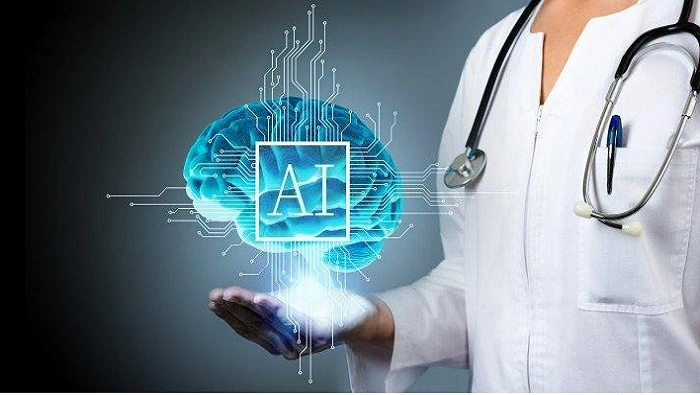
7. NVIDIA MONAI
NVIDIA MONAI (Medical Open Network for AI) is an open-source framework designed to accelerate the development of AI-assisted medical imaging applications. It provides a comprehensive set of tools and libraries for image processing, segmentation, and analysis using generative AI in healthcare algorithms.
Example: Hospitals integrate NVIDIA MONAI for AI-assisted medical imaging interpretation. The framework’s robust algorithms enable radiologists to efficiently analyze medical images, leading to faster diagnosis and treatment decisions.
8. Microsoft Healthcare Bot
Microsoft Healthcare Bot is an AI-powered conversational agent designed to improve patient engagement and care coordination. Leveraging generative AI, the bot provides personalized health information, appointment scheduling assistance, and virtual triage services.
Example: Healthcare organizations deploy Microsoft Healthcare Bot to provide 24/7 virtual support to patients. The bot’s natural language processing capabilities enable it to understand patient queries and provide relevant information and guidance, improving patient satisfaction and access to care.
Explore more about Future Applications of Conversational AI in Healthcare.
9. Google Cloud Healthcare API
Google Cloud Healthcare API is a scalable and secure platform for storing, processing, and analyzing healthcare data. It offers a suite of tools and services for data interoperability, allowing healthcare organizations to integrate and analyze disparate data sources using generative AI in healthcare techniques.
Example: Healthcare providers leverage Google Cloud Healthcare API to aggregate and analyze electronic health records (EHRs) from multiple sources. By applying generative AI in healthcare algorithms, they can derive insights from large-scale patient data to inform clinical decision-making and population health management.
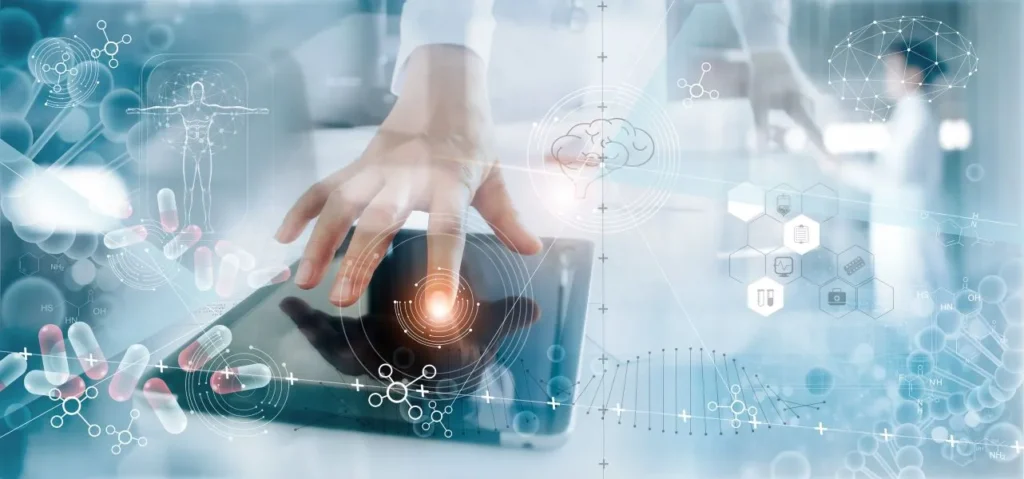
10. GE Healthcare Edison
GE Healthcare Edison is an AI platform that utilizes generative AI and machine learning algorithms to drive innovation in healthcare. It offers a suite of tools and applications for medical imaging interpretation, predictive analytics, and clinical decision support.
Example: Hospitals integrate GE Healthcare Edison for AI-assisted medical imaging interpretation. The platform’s advanced algorithms analyze medical images and provide radiologists with actionable insights, improving diagnostic accuracy and patient outcomes.
11. MedLM
MedLM is a generative AI model by Google made for healthcare released in Dec, 2023. People who use Google Cloud in the United States can access MedLM. It’s part of the Vertex AI platform, which is a toolkit for AI projects. Meanwhile, MedLM is being tested in some other countries too.
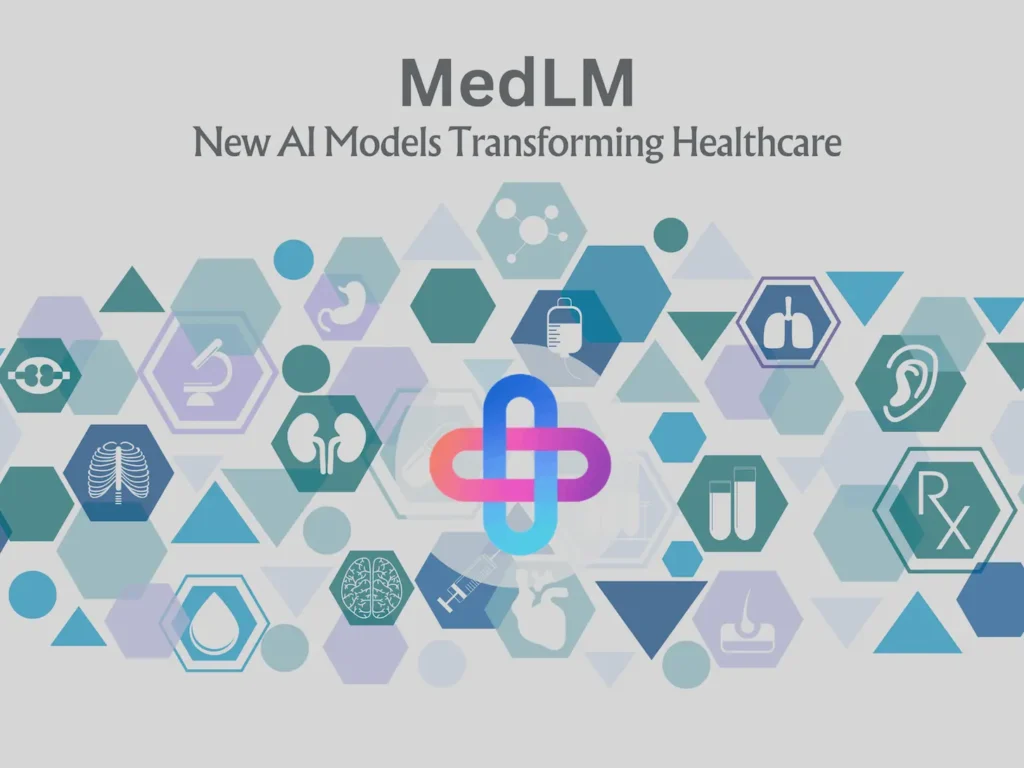
Example: MedLM is quite recent addition in generative AI in healthcare tools. Currently, it MedLM offers two models providing flexibility to healthcare organizations from simple tasks to more intricate processes. For instance, one model might be better for summarizing conversations, while another might excel at searching through medications. The first model in the MedLM series is larger and ideal for tackling complex tasks. On the other hand, the second model is of medium size, making it easier to fine-tune and suitable for handling multiple tasks.
Benefits and Future Prospects
Generative AI in healthcare holds immense promise for transforming patient care, diagnosis, and treatment. These AI models and tools offer several benefits, including improved diagnostic accuracy, personalized treatment planning, and streamlined workflows. Looking ahead, the future prospects of generative AI in Healthcare are bright, with ongoing advancements in AI research, technology, and healthcare infrastructure poised to drive further innovation and adoption.
In conclusion, the integration of generative AI in healthcare promises to revolutionize patient care and medical research. By applying these AI tools, healthcare professionals can unlock new insights, streamline workflows, and ultimately improve patient outcomes in profound ways.



